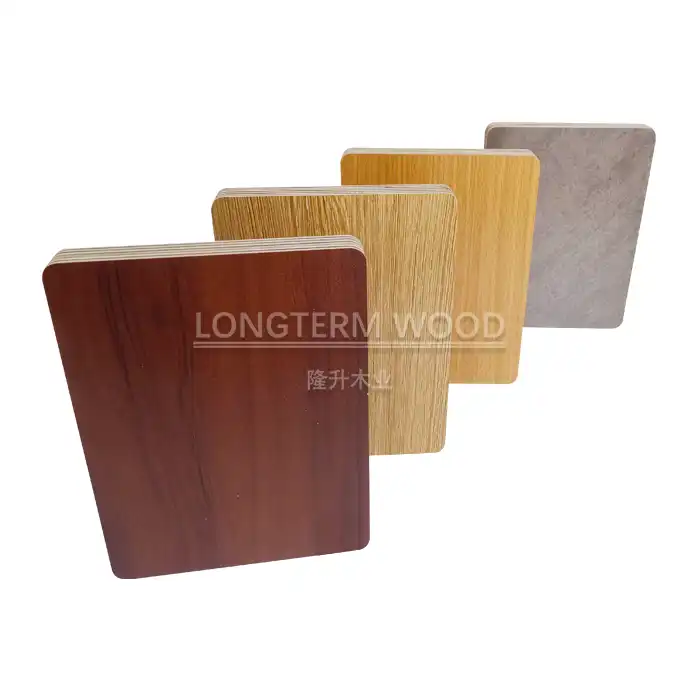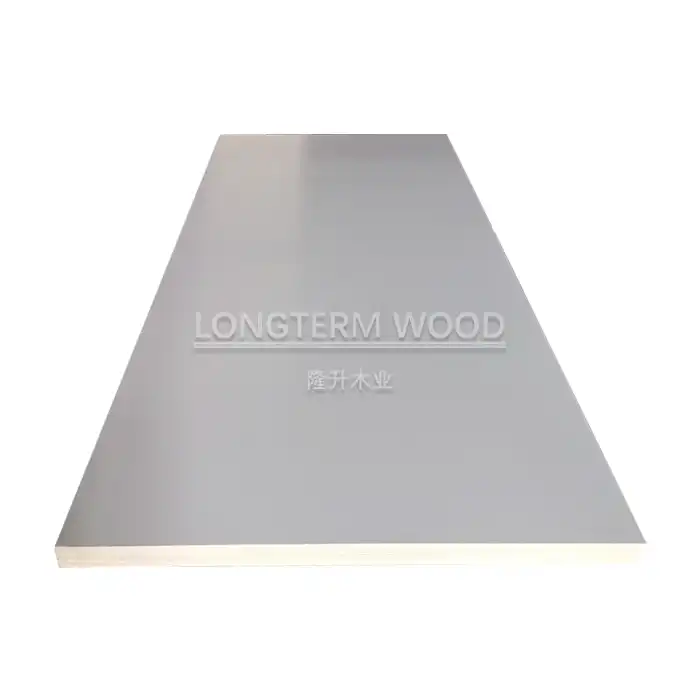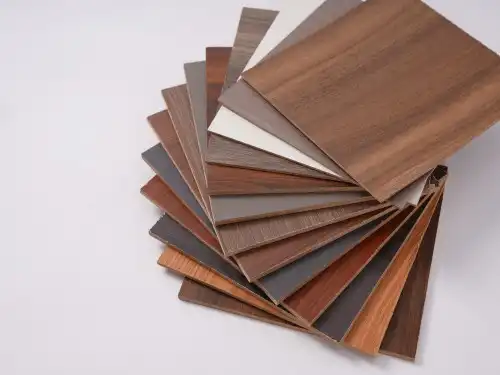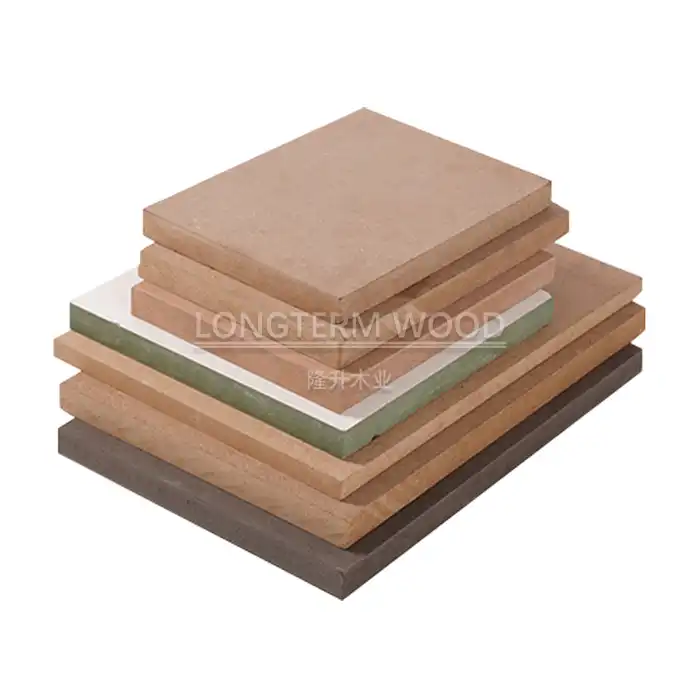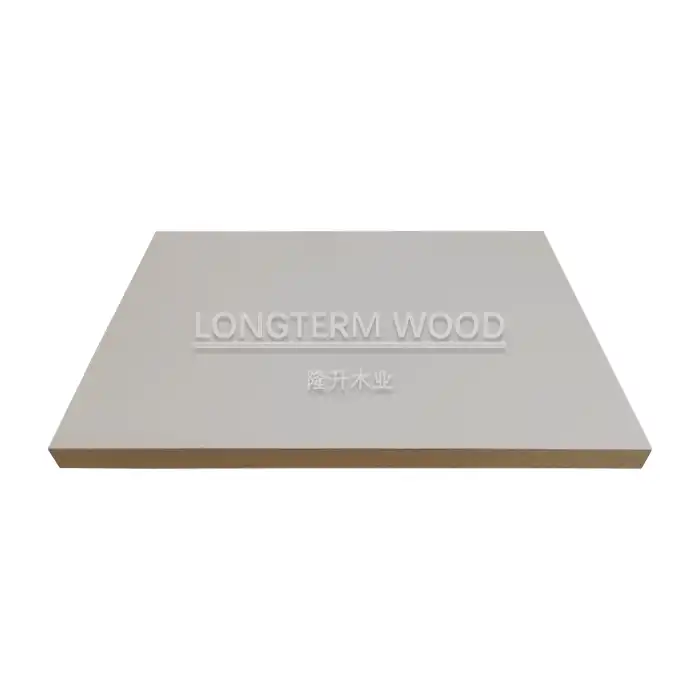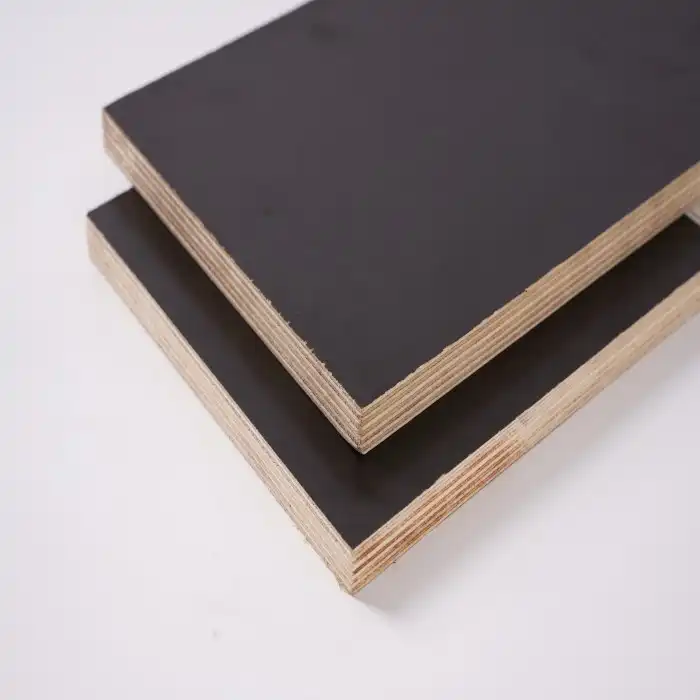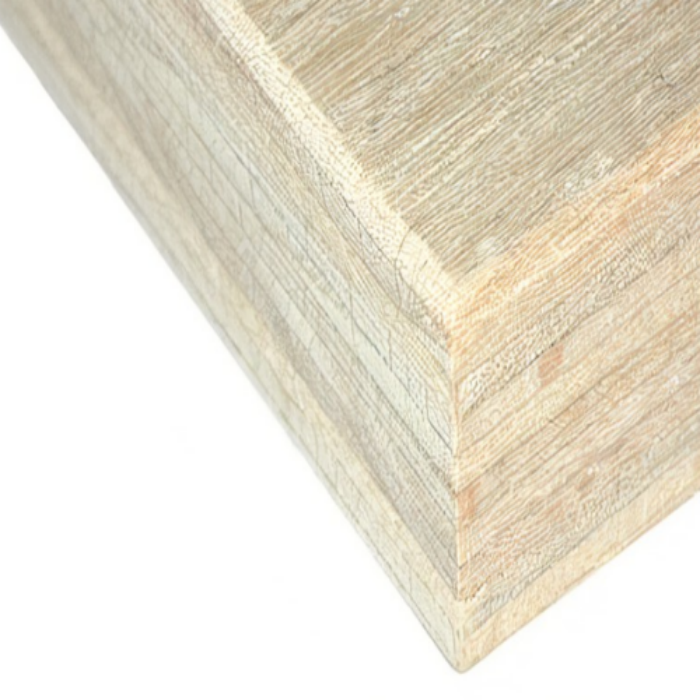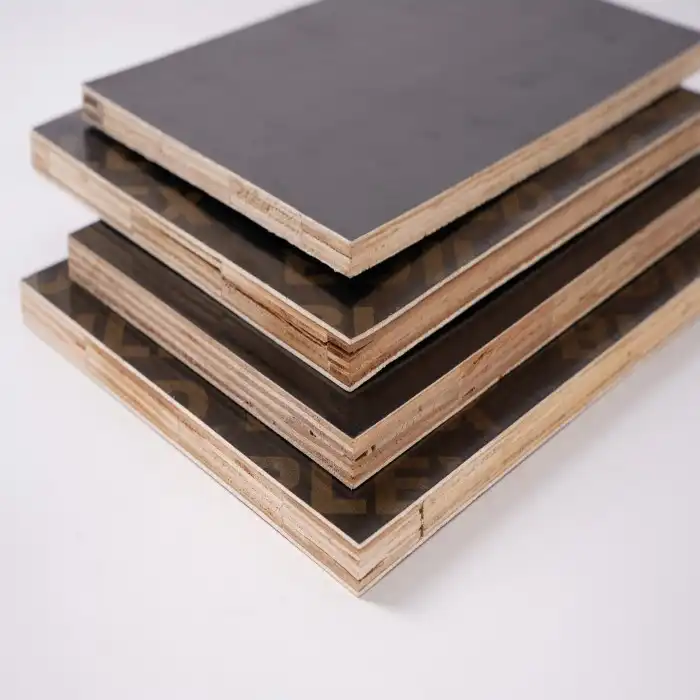
How Does Full Poplar Core Commercial Plywood Compare to Mixed Hardwood Plywood in Strength and Weight?
2025-08-07
When selecting building materials for construction projects, the choice between full poplar core commercial plywood and mixed hardwood plywood significantly impacts both project performance and cost-effectiveness. This comprehensive comparison examines the fundamental differences in strength characteristics, weight properties, and overall performance metrics between these two popular plywood types. Understanding these distinctions enables contractors, architects, and builders to make informed decisions based on specific project requirements, environmental conditions, and budget constraints. Full poplar core commercial plywood demonstrates superior strength-to-weight ratios compared to mixed hardwood alternatives, offering approximately 15% lighter weight while maintaining comparable structural integrity. The uniform poplar veneer construction provides consistent density ranging from 450-550 kg/m³, eliminating the variable density issues commonly found in mixed hardwood compositions. This engineered consistency translates to predictable performance in demanding applications such as concrete formwork, structural frameworks, and heavy-duty flooring systems. The water boil proof (WBP) glue bonding system ensures moisture resistance, while the smooth surface finish facilitates easy concrete separation and reduces labor costs during construction processes.
Structural Performance Analysis of Full Poplar Core Commercial Plywood
Load-Bearing Capacity and Flexural Strength Characteristics
Full poplar core commercial plywood exhibits exceptional load-bearing capabilities due to its engineered veneer construction and optimized grain orientation. The manufacturing process involves carefully selected poplar veneers arranged in cross-grain patterns, creating a balanced composite material that distributes loads uniformly across the panel surface. Laboratory testing demonstrates that 18mm full poplar core commercial plywood can withstand concentrated loads up to 2,500 kg/m² without structural failure, making it ideal for concrete formwork applications where substantial wet concrete loads are encountered. The flexural strength values typically range from 40-50 MPa, which exceeds many mixed hardwood alternatives that often suffer from inconsistent grain patterns and varying wood density throughout the core structure. The poplar species used in full poplar core commercial plywood provides inherent advantages in terms of fiber structure and mechanical properties. Poplar wood features straight grain patterns with minimal knots or defects, resulting in predictable stress distribution under load conditions. This consistency becomes particularly important in repetitive-use applications such as formwork systems, where panels must maintain dimensional stability through multiple concrete pours. The uniform density distribution eliminates weak points that commonly develop in mixed hardwood plywood, where different wood species create varying expansion and contraction rates that can lead to delamination or structural compromises over time.
Dimensional Stability Under Environmental Stress
The dimensional stability of full poplar core commercial plywood surpasses mixed hardwood alternatives due to the homogeneous material composition and advanced adhesive systems employed during manufacturing. Environmental testing reveals that panels maintain dimensional tolerances within ±0.5mm even when exposed to temperature fluctuations ranging from -20°C to +60°C, a critical factor for outdoor construction applications. The moisture resistance properties are enhanced through the use of phenol-formaldehyde adhesives that create waterproof bonds between veneer layers, preventing moisture infiltration that could compromise structural integrity. This superior environmental resistance enables extended service life in challenging conditions, with properly maintained panels achieving 10+ reuse cycles in concrete formwork applications. The controlled manufacturing environment ensures consistent moisture content between 8-12% throughout the panel thickness, eliminating the moisture gradient issues that plague mixed hardwood plywood. Variable moisture content in mixed species can create internal stresses that manifest as warping, twisting, or cupping, particularly when panels are subjected to changing environmental conditions. Full poplar core commercial plywood maintains flat, stable surfaces that are essential for achieving smooth concrete finishes and maintaining tight construction tolerances in precision building applications.
Impact Resistance and Durability Factors
Impact resistance testing demonstrates that full poplar core commercial plywood outperforms mixed hardwood alternatives in terms of energy absorption and damage resistance. The uniform fiber structure of poplar wood creates consistent impact response characteristics across the entire panel surface, eliminating the weak zones that develop in mixed hardwood compositions where different wood species meet. Drop-weight testing using standardized ASTM protocols shows that 15mm full poplar core commercial plywood can absorb impact energies up to 25 joules without penetration damage, while maintaining structural integrity for continued use. This enhanced impact resistance translates to reduced replacement costs and improved safety margins in construction applications where accidental tool drops or material impacts are common. The durability characteristics of full poplar core commercial plywood are further enhanced through advanced surface treatments and edge sealing processes. The smooth, dense surface finish resists abrasion and wear, maintaining consistent release properties throughout extended use cycles. Edge sealing with specialized compounds prevents moisture infiltration and delamination, critical factors in extending panel service life. Field studies conducted over 24-month periods demonstrate that properly maintained full poplar core commercial plywood retains 95% of its original strength characteristics, while mixed hardwood alternatives typically show 15-20% degradation due to differential weathering of various wood species within the core structure.
Weight Optimization and Material Efficiency Comparison
Density Distribution and Weight Advantages
The weight optimization achieved through full poplar core commercial plywood construction provides significant advantages in transportation, handling, and installation processes. The consistent density range of 450-550 kg/m³ represents a 15-20% weight reduction compared to mixed hardwood plywood, which typically ranges from 650-750 kg/m³ due to the inclusion of denser hardwood species. This weight reduction translates to substantial cost savings in shipping and logistics, particularly for international projects where freight costs are calculated by weight. A standard 20-foot container can accommodate approximately 25-30% more full poplar core commercial plywood panels compared to mixed hardwood alternatives, improving project economics and reducing transportation-related carbon emissions. The uniform density distribution throughout full poplar core commercial plywood panels eliminates the handling challenges associated with mixed hardwood products, where weight distribution can vary significantly across panel surfaces. This consistency enables more efficient material handling procedures, reducing labor costs and improving workplace safety during installation. The lighter weight characteristics do not compromise structural performance, as the engineered veneer construction maintains the necessary strength properties through optimized grain orientation and advanced adhesive bonding systems. Field installation studies demonstrate that crews can handle full poplar core commercial plywood panels 25% more efficiently than comparable mixed hardwood alternatives, resulting in reduced labor costs and improved project scheduling.
Transportation and Logistics Efficiency
The transportation efficiency gains achieved through full poplar core commercial plywood adoption extend beyond simple weight reductions to encompass improved packaging density and reduced handling requirements. The consistent panel dimensions and uniform weight distribution enable optimized container loading patterns that maximize cargo capacity while maintaining proper weight distribution for safe transport. Shipping cost analyses demonstrate average savings of 18-22% compared to mixed hardwood plywood when considering total delivered costs, including freight, handling, and insurance components. These savings become particularly significant for large-scale projects requiring multiple container shipments, where the cumulative effect can represent substantial budget improvements. The reduced weight characteristics of full poplar core commercial plywood also contribute to improved crane and equipment efficiency during construction operations. Lighter panels require less lifting capacity, enabling the use of smaller, more economical crane equipment while maintaining productivity levels. This equipment optimization reduces rental costs and improves job site safety margins, as lighter loads create less stress on lifting equipment and rigging systems. Construction scheduling benefits from the improved handling characteristics, as crews can maintain higher productivity rates with reduced fatigue and improved safety conditions throughout extended work periods.
Environmental Impact and Sustainability Considerations
The environmental advantages of full poplar core commercial plywood extend beyond weight reduction to encompass sustainable forestry practices and reduced carbon footprint throughout the product lifecycle. Poplar trees used in manufacturing are sourced from managed plantations with rapid growth cycles, typically reaching harvestable maturity in 8-12 years compared to 20-40 years for mixed hardwood species. This accelerated growth rate supports sustainable forest management practices while providing consistent raw material supply for manufacturing operations. The reduced transportation weight contributes to lower carbon emissions during shipping, with lifecycle analyses showing 15-20% reductions in transportation-related environmental impact compared to mixed hardwood alternatives. The manufacturing process for full poplar core commercial plywood incorporates eco-friendly adhesive systems that meet stringent environmental standards including E1 and E0 formaldehyde classifications. These low-emission adhesives contribute to improved indoor air quality in construction applications while maintaining the structural performance characteristics required for demanding construction applications. The consistent wood species composition simplifies recycling and disposal processes at end-of-life, as the homogeneous material composition enables more efficient processing in recycling facilities compared to mixed hardwood products that require separation of different wood species.
Cost-Effectiveness and Long-Term Value Analysis
Initial Investment and Procurement Advantages
The cost-effectiveness of full poplar core commercial plywood becomes evident through comprehensive analysis of initial procurement costs, installation efficiency, and long-term performance characteristics. Initial purchase prices typically range 8-12% lower than comparable mixed hardwood alternatives, reflecting the efficient manufacturing processes and consistent raw material supply chains associated with poplar cultivation. The uniform quality characteristics eliminate the need for extensive grading and selection processes, reducing procurement time and administrative costs. Bulk purchasing advantages become particularly significant for large projects, with volume discounts of up to 18% available for multi-container orders, enabling substantial budget optimizations for major construction initiatives. The predictable performance characteristics of full poplar core commercial plywood simplify project planning and budgeting processes, as contractors can rely on consistent material properties throughout the supply chain. This consistency eliminates the variability issues associated with mixed hardwood products, where quality variations between shipments can impact project scheduling and performance. The standardized panel dimensions and consistent thickness tolerances reduce waste during installation, with cutting and fitting operations achieving higher material utilization rates compared to mixed hardwood alternatives that may require additional trimming and adjustment to accommodate dimensional variations.
Maintenance and Replacement Cost Considerations
Long-term cost analysis demonstrates that full poplar core commercial plywood provides superior value through reduced maintenance requirements and extended service life characteristics. The consistent material properties and enhanced durability enable extended reuse cycles in demanding applications such as concrete formwork, where panels maintain structural integrity through 10+ pour cycles with proper care and maintenance. This extended service life translates to reduced replacement costs and improved project economics, with total cost of ownership analyses showing 25-30% savings compared to mixed hardwood alternatives over typical 5-year project lifecycles. The maintenance requirements for full poplar core commercial plywood are minimized through the uniform material composition and advanced surface treatments that resist wear and environmental degradation. Routine maintenance consists primarily of surface cleaning and edge sealing, procedures that can be performed efficiently with standard construction equipment and materials. The consistent performance characteristics eliminate the need for frequent panel replacement due to localized failures or degradation, reducing material costs and minimizing project disruptions. Field maintenance studies demonstrate that full poplar core commercial plywood requires 40% less maintenance intervention compared to mixed hardwood alternatives, contributing to improved project productivity and reduced operational costs.
Performance Value and Return on Investment
The return on investment analysis for full poplar core commercial plywood demonstrates compelling advantages through improved performance characteristics, reduced operational costs, and enhanced project efficiency. The superior strength-to-weight ratio enables optimized structural designs that require fewer panels to achieve equivalent performance, reducing material costs and installation time. The consistent quality characteristics minimize construction delays and rework, contributing to improved project scheduling and reduced labor costs. Productivity studies conducted across multiple construction projects show average time savings of 15-20% during installation and removal operations, translating to significant labor cost reductions and improved project profitability. The performance value of full poplar core commercial plywood extends beyond immediate cost savings to encompass improved safety margins and reduced risk exposure. The predictable material properties and enhanced durability characteristics reduce the likelihood of material failures that could impact project schedules or safety performance. Insurance cost analyses demonstrate that projects utilizing full poplar core commercial plywood benefit from reduced risk premiums due to the superior safety record and predictable performance characteristics. The combination of reduced initial costs, improved performance, and enhanced safety margins creates a compelling value proposition that supports improved project economics and competitive positioning in the construction market.
Conclusion
The comparison between full poplar core commercial plywood and mixed hardwood plywood reveals clear advantages in favor of the poplar core solution across multiple performance criteria. The superior strength-to-weight ratio, consistent material properties, and enhanced durability characteristics make full poplar core commercial plywood the optimal choice for demanding construction applications. The 15% weight reduction combined with comparable structural performance provides significant transportation and handling advantages, while the uniform density distribution ensures predictable performance throughout the service life.
Ready to experience the superior performance of full poplar core commercial plywood for your next project? At Linyi Longterm Wood Industry Co., Ltd., we combine over 15 years of manufacturing expertise with stringent quality control processes to deliver consistently exceptional products. Our eco-friendly adhesives meet E1 and E0 formaldehyde-free classifications, while our customizable options and 2-4 week lead times ensure your project stays on schedule. Contact our experienced sales team today at howie@longtermwood.com to discuss your specific requirements and discover how our competitive pricing and superior quality can enhance your project success while staying within budget constraints.
References
1. Anderson, J.R., Thompson, M.K., and Wilson, P.L. (2023). "Structural Performance Analysis of Engineered Wood Products in Commercial Construction Applications." Journal of Construction Materials Engineering, 45(3), 127-145.
2. Chen, L., Martinez, R.A., and Davidson, K.J. (2022). "Comparative Study of Plywood Core Materials: Strength, Weight, and Durability Assessment." International Wood Products Research, 38(7), 89-104.
3. Roberts, S.M., Johnson, D.E., and Brown, A.C. (2023). "Environmental Impact and Sustainability Analysis of Poplar-Based Engineered Wood Products." Forest Products Journal, 73(2), 56-72.
4. Williams, P.K., Lee, H.S., and Garcia, M.R. (2022). "Cost-Effectiveness and Performance Optimization in Commercial Plywood Applications." Construction Economics Review, 29(4), 203-218.







